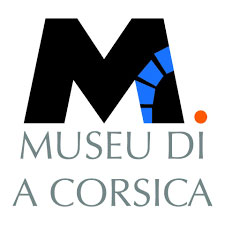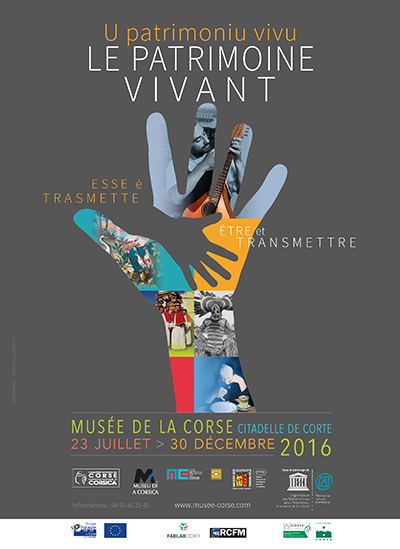Festivals, skills, knowledge of nature and the universe
We all remember music, songs and dances, tales, games and festivals, remedies and techniques inherited from our ancestors and to which we still refer, adapting them to the circumstances…
In the face of economic and social mutations, in the face of the acceleration of “globalization”, the UNESCO Convention for the Safeguarding of the Intangible Cultural Heritage (2003) is an international mechanism that proposes to recognize cultural practices and their actors as essential elements of the diversity of societies and of human creativity. The knowledge of the Intangible Cultural Heritage (ICP) appears as a strong stake for the territories which wish to be registered in a logic of sustainable development. In Corsica, a French region with a strong identity, it has a particular resonance.
To ask today, in Corsica, the question of the ICH, is to question the way in which the heritage is perceived and lived, intimately and collectively, the way in which this one is created and transmitted, with which stakes and which effects; it is to question the performative power of the heritage and the place of the immaterial in the museum.
The reflection will be carried out from a double entry point, that of heritage and that of territory, allowing to unfold the question of identities, borders and circulations, that is to say the limits, the permeability and the continuities of the heritage field (between the tangible and the intangible) and the elements of the ICH which can be practiced by restricted or extended communities, sometimes without territorial continuity.
Through some examples of practices and expressions constituting the cultural heritage of Corsica as it is transmitted and constantly updated, compared with elements registered on the Unesco lists representative of the diversity of forms and expressions of the ICH throughout the world, the exhibition will address in particular the notions of everyday and exceptional, public and private, masculine and feminine.
The ICH is both intimate – including in its exceptional and collective manifestations such as the attachment to the micro-territory of certain festivals – and universal through the UNESCO convention. It is precisely because it is intimate and diverse that it is universal, and vice versa.
The modalities of appropriation of this “new” category of heritage, a reflection of cultural diversity, raise a certain number of questions. How can we make the public aware of the importance and the challenges of transmission and safeguarding of ICH? How can we encourage reflection on the notions of family, local, regional, national or universal cultural heritage? How can we safeguard certain practices and initiate a participative dynamic and facilitate the networking of actors within and outside a territory? This exhibition questions the way we want to transmit, share and value this cultural heritage.
Curator :
- Séverine Cachat, general curator, Director of the French Center for Intangible Cultural Heritage
- Pierre-Jean Campocasso, curator, regional ethnologist, CTC
- Philippe Salort, curator, ethnologist, CTC
- Bernard Pazzoni, curator, ethnomusicologist, heritage curator, CTC
Scientific council :
- François- Joseph Kremer-Marietti, Director of Culture and Heritage, CTC
- Gabrielle Torre, project manager for intangible cultural heritage and scientific coordination
- Paul Simonpoli, ethnologist, heritage curator, PNRC
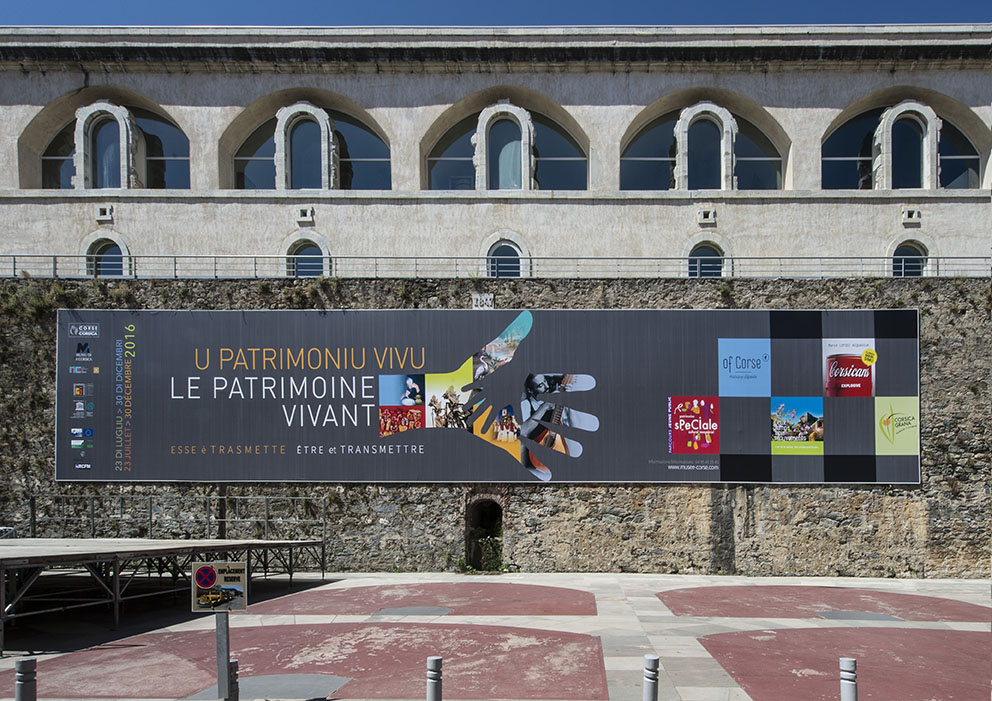
CdC, musée de la Corse/Cl. P. Pierangeli 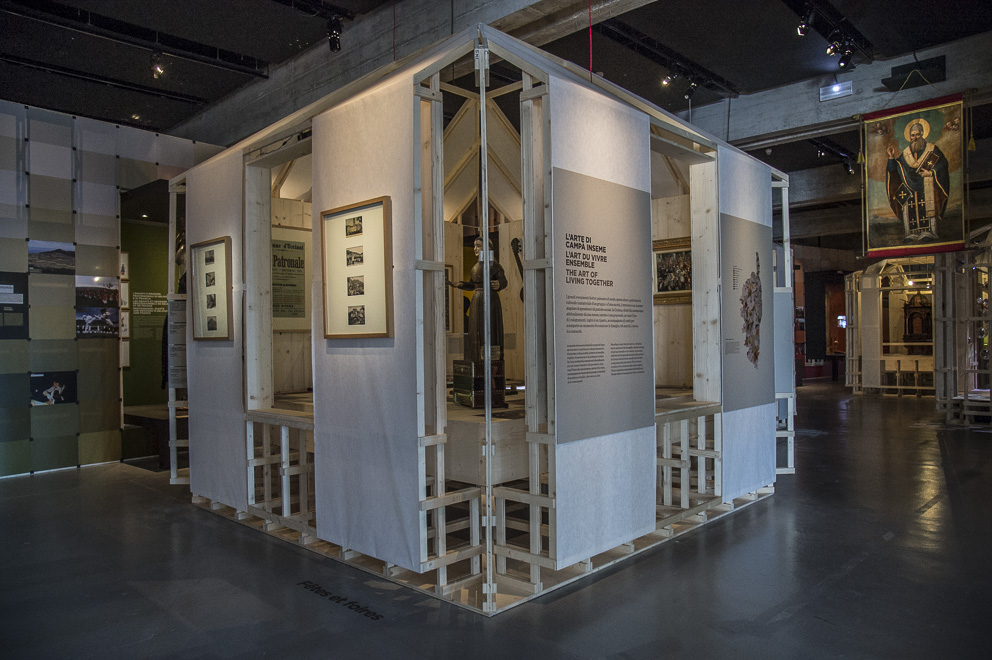
CdC, musée de la Corse/Cl. P. Pierangeli 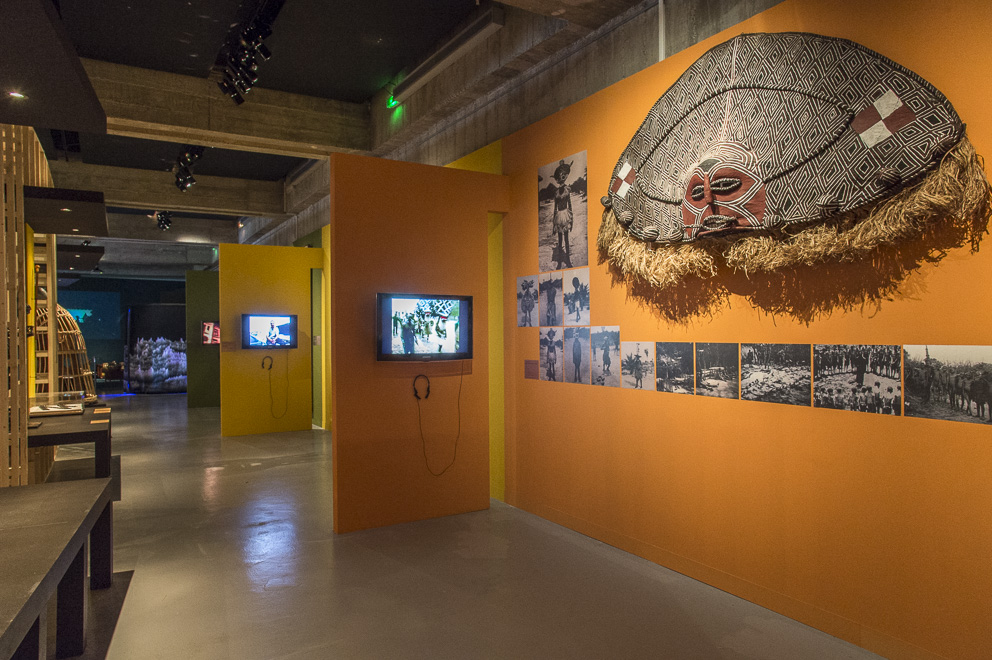
CdC, musée de la Corse/Cl. P. Pierangeli 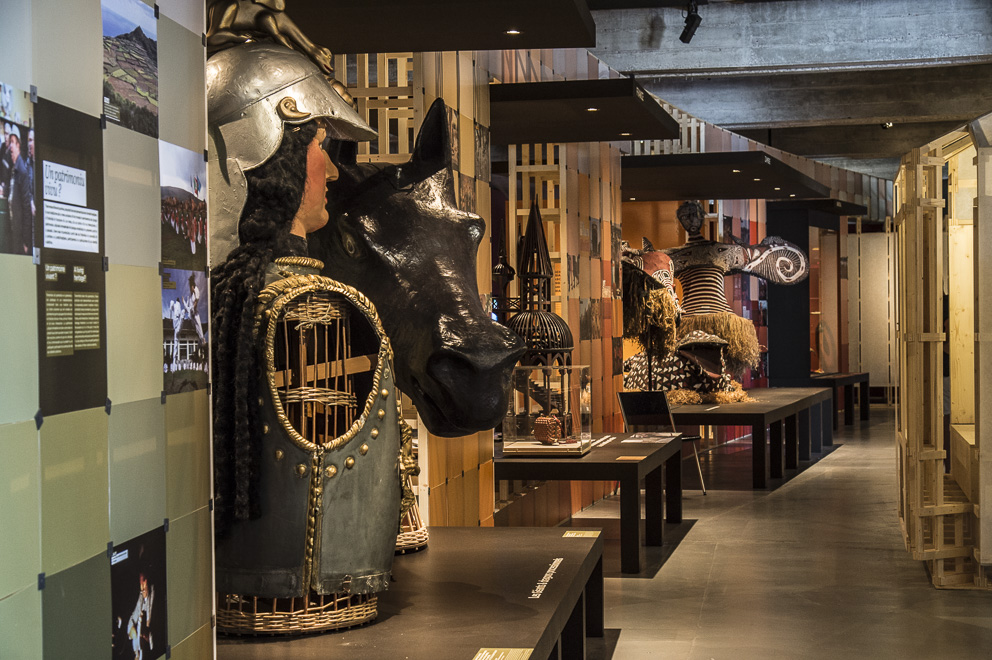
CdC, musée de la Corse/Cl. P. Pierangeli 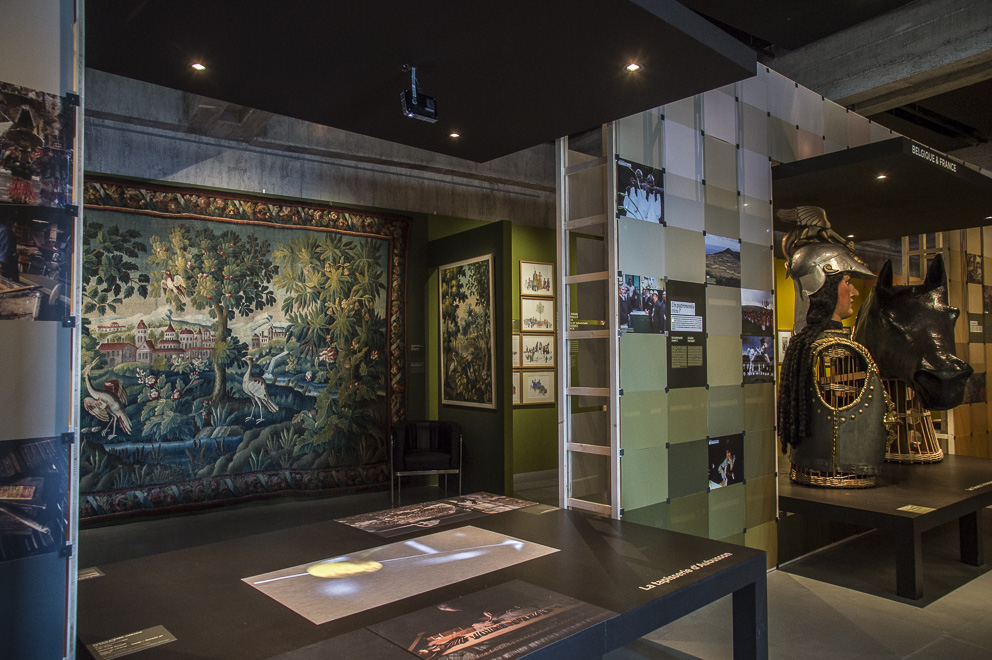
CdC, musée de la Corse/Cl. P. Pierangeli 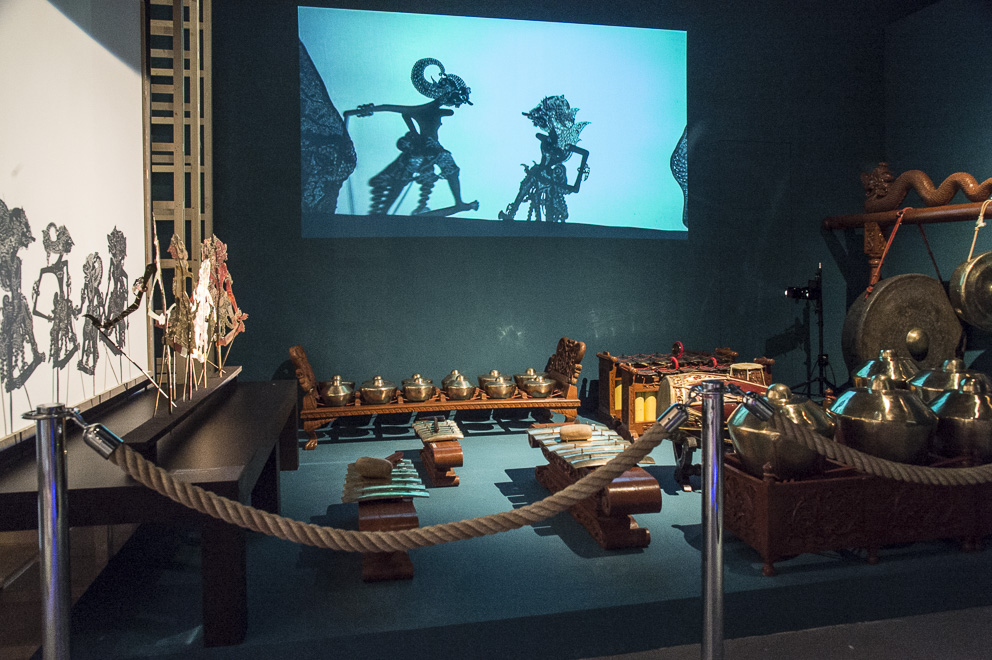
CdC, musée de la Corse/Cl. P. Pierangeli
